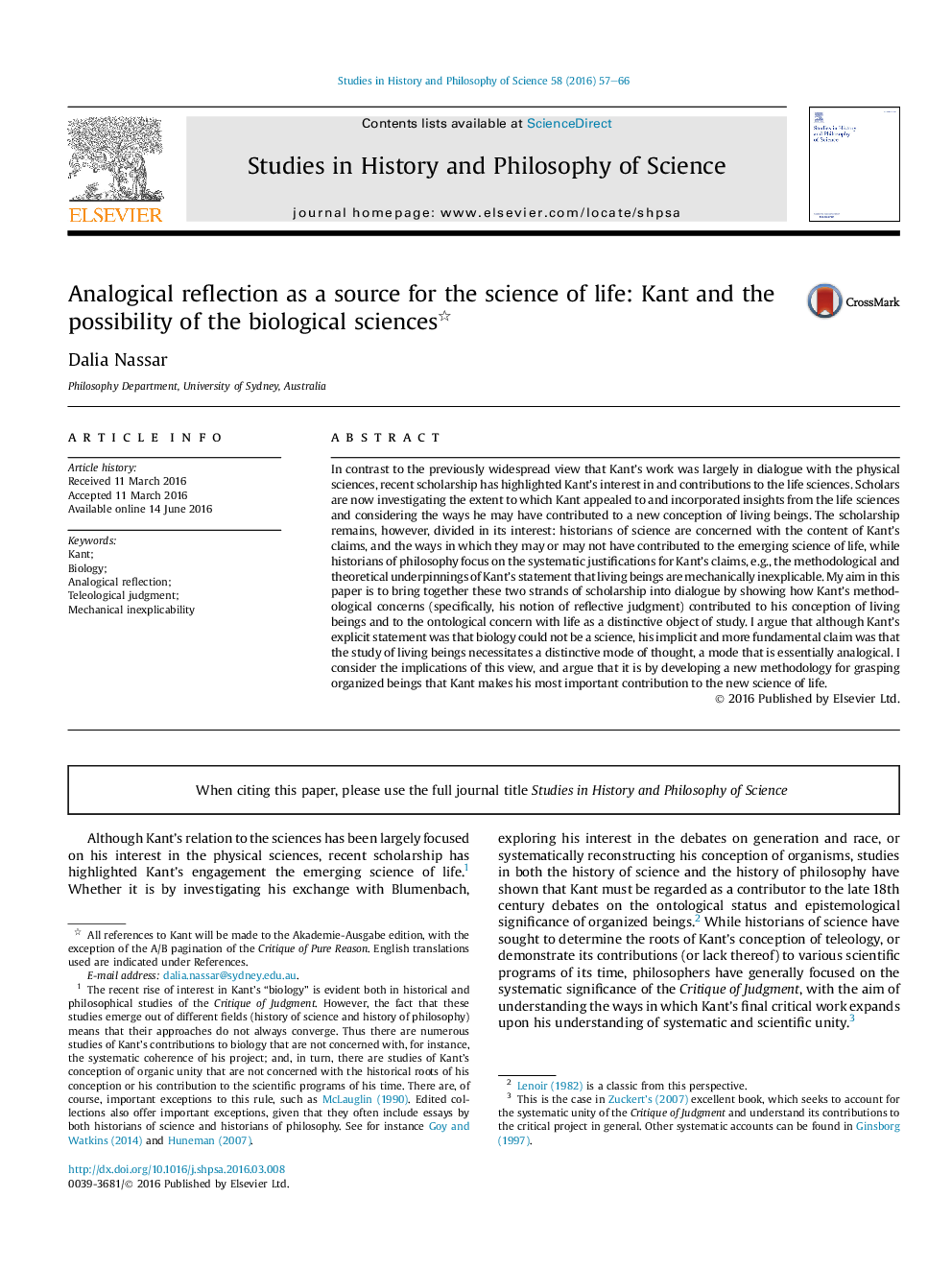| کد مقاله | کد نشریه | سال انتشار | مقاله انگلیسی | نسخه تمام متن |
|---|---|---|---|---|
| 1160331 | 1490324 | 2016 | 10 صفحه PDF | دانلود رایگان |
• A new reading of the Antinomy of Teleological Judgment, focusing on the tension between Kant's a priori conception of science and his interest in empirical science.
• A positive account of how teleological judgment can contribute to a scientific research program.
• A systematic interpretation of teleological judgment as a form of analogical reflection, linking Kant to the history of biology and to his contemporaries.
In contrast to the previously widespread view that Kant's work was largely in dialogue with the physical sciences, recent scholarship has highlighted Kant's interest in and contributions to the life sciences. Scholars are now investigating the extent to which Kant appealed to and incorporated insights from the life sciences and considering the ways he may have contributed to a new conception of living beings. The scholarship remains, however, divided in its interest: historians of science are concerned with the content of Kant's claims, and the ways in which they may or may not have contributed to the emerging science of life, while historians of philosophy focus on the systematic justifications for Kant's claims, e.g., the methodological and theoretical underpinnings of Kant's statement that living beings are mechanically inexplicable. My aim in this paper is to bring together these two strands of scholarship into dialogue by showing how Kant's methodological concerns (specifically, his notion of reflective judgment) contributed to his conception of living beings and to the ontological concern with life as a distinctive object of study. I argue that although Kant's explicit statement was that biology could not be a science, his implicit and more fundamental claim was that the study of living beings necessitates a distinctive mode of thought, a mode that is essentially analogical. I consider the implications of this view, and argue that it is by developing a new methodology for grasping organized beings that Kant makes his most important contribution to the new science of life.
Journal: Studies in History and Philosophy of Science Part A - Volume 58, August 2016, Pages 57–66
